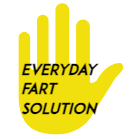How to control fart problem?
Do you ever find yourself battling with the embarrassing issue of uncontrollable flatulence? If so, you’re not alone. Many people struggle with how to control fart problems effectively.
In this article, we’ll explore practical tips and expert advice to help you manage this common but often uncomfortable problem.
The key to controlling fart problems lies in understanding the factors that contribute to excessive gas production and finding strategies to address them.
From dietary adjustments to lifestyle changes, there are various methods you can incorporate into your daily routine to minimize gas and discomfort.
Curious to learn more about how to tackle this sensitive issue and regain control over your digestive health?
Join us as we delve deeper into the topic, backed by insights from renowned gastroenterologists and nutrition experts. Let’s navigate the journey toward a gas-free existence together.
How to control fart problem?
Do you often find yourself grappling with the embarrassing issue of excessive flatulence? Are you searching for effective ways to control this uncomfortable problem and reclaim your confidence?
In this article, we dive into the solutions to your “How to control fart problem?” query, offering practical tips and insights to help you manage this common yet bothersome concern.

To address the fart problem effectively, it’s crucial to understand its underlying causes and triggers. By adopting dietary adjustments, incorporating digestive aids, and practicing mindful eating habits, you can significantly reduce instances of excessive flatulence and alleviate associated discomfort.
Curious to explore comprehensive strategies and expert advice on managing fart-related issues?
Our detailed guide delves deeper into effective dietary changes, lifestyle modifications, and proven remedies recommended by renowned gastroenterologists. Say goodbye to embarrassing moments and hello to a happier, more comfortable you.
7 ways to control fart problem
1. Dietary Adjustments
One of the primary factors contributing to excessive flatulence is diet. Foods high in fiber, such as beans, broccoli, and cabbage, can lead to increased gas production.
To control fart problems, consider reducing your intake of these gas-producing foods. Instead, opt for low-fiber alternatives like rice, lean proteins, and cooked vegetables. Additionally, incorporating probiotic-rich foods like yogurt and kefir can help promote a healthy digestive system and reduce gas buildup.
2. Mindful Eating Habits
How you eat can also impact fart problems. Eating too quickly or overeating can lead to swallowing excess air, which can contribute to flatulence. Practice mindful eating by chewing your food thoroughly, avoiding gulping beverages, and eating smaller, more frequent meals throughout the day. This approach can aid in proper digestion and reduce the likelihood of excessive gas production.
3. Hydration
Adequate hydration is essential for a healthy digestive system and can play a role in controlling fart problems. Drinking enough water helps soften stool, making it easier to pass and reducing gas buildup in the intestines. Aim to drink at least eight glasses of water per day and limit caffeinated and carbonated beverages, which can contribute to gas.
4. Regular Exercise
Physical activity promotes overall digestive health and can help alleviate fart problems. Engage in regular exercise, such as walking, jogging, or yoga, to stimulate bowel movements and prevent constipation. This can reduce the likelihood of gas accumulation in the digestive tract and promote a more balanced gut environment.
5. Avoiding Trigger Foods
Certain foods and beverages are known to trigger increased gas production and should be avoided or limited. Examples include carbonated drinks, fried foods, spicy dishes, and artificial sweeteners. Identify your personal trigger foods and minimize their consumption to help control fart problems effectively.
6. Stress Management
Stress can impact digestion and contribute to gastrointestinal issues, including excessive flatulence. Practice stress-reducing techniques such as deep breathing exercises, meditation, and regular relaxation activities to promote a calmer digestive system and reduce gas-related discomfort.
7. Consulting a Healthcare Professional
If fart problems persist despite lifestyle modifications, consulting a healthcare professional is recommended. A gastroenterologist can conduct tests to identify any underlying digestive issues, provide personalized recommendations, and prescribe medications or treatments if necessary.
By implementing these seven effective strategies, you can take proactive steps to control fart problems and improve your digestive health overall. Remember to tailor these approaches to your individual needs and consult a healthcare provider for personalized guidance.
How to stop a fart making noise?
To prevent a fart from making noise, you can follow a few simple strategies. First, try to control the release of gas by contracting your abdominal muscles slightly before passing gas.
This can help minimize the sound produced. Additionally, choosing a position that reduces noise, such as sitting on a cushioned surface or leaning slightly to one side, can also be effective.
Another technique is to release gas slowly and steadily, rather than in a sudden burst, which can help reduce noise.
You can also try using noise-masking techniques, such as coughing discreetly or creating background noise by turning on a fan or running water.
Finally, wearing loose-fitting clothing can prevent gas from getting trapped and causing loud noises. Experiment with these methods to find what works best for you in different situations.
I fart 100 times a day
Experiencing frequent flatulence, such as farting around 100 times a day, can be attributed to several factors.
Dietary choices play a significant role, particularly consuming foods high in fiber, certain carbohydrates like beans and cabbage, and carbonated beverages, all of which can lead to increased gas production. Eating quickly or swallowing air while eating can also contribute to frequent farting.
Other factors include digestive issues like lactose intolerance or irritable bowel syndrome (IBS), which can cause excessive gas. Stress and anxiety may also impact digestive function and result in more frequent flatulence.
It’s essential to evaluate your diet, eating habits, and overall health to identify potential triggers for excessive farting.
Consulting with a healthcare professional, especially a gastroenterologist, can help determine underlying causes and provide guidance on dietary adjustments, lifestyle changes, and potential treatments to reduce excessive flatulence and improve digestive comfort.
Why do I fart when I walk?
Farting while walking can occur due to several reasons.
One common factor is the movement of your body while walking, which can stimulate the release of trapped gas in your digestive system.
Additionally, physical activity, including walking, can accelerate digestion and the passage of food through your intestines, leading to increased gas production.
Another reason could be related to the foods you consume before walking.
Certain foods, such as beans, broccoli, and cabbage, are known to cause gas production. Eating these foods before walking can contribute to farting during your activity.
Additionally, swallowing air while walking, especially if you’re breathing rapidly or talking, can lead to excess air in your digestive tract, resulting in farting.
It’s essential to pay attention to your diet, eating habits, and body movements to identify potential triggers for farting while walking and make necessary adjustments for digestive comfort.
Food that cause flatulence
Certain foods are notorious for causing flatulence due to their composition and how they interact with the digestive system.
Beans and legumes, such as chickpeas, lentils, and kidney beans, contain high amounts of complex carbohydrates that are not fully digested in the small intestine, leading to fermentation in the colon and gas production.
Cruciferous vegetables like broccoli, cauliflower, and cabbage are rich in fiber and sulfur compounds, which can also contribute to flatulence.
Foods high in fructose, such as onions, apples, and pears, as well as artificial sweeteners like sorbitol and mannitol found in sugar-free products, are known to cause gas in some individuals.
Dairy products, particularly those containing lactose, can lead to flatulence in individuals with lactose intolerance.
Carbonated beverages, fried foods, and high-fat meals can also contribute to gas production and flatulence.
Monitoring your intake of these foods and making dietary adjustments can help manage flatulence and promote digestive comfort.



